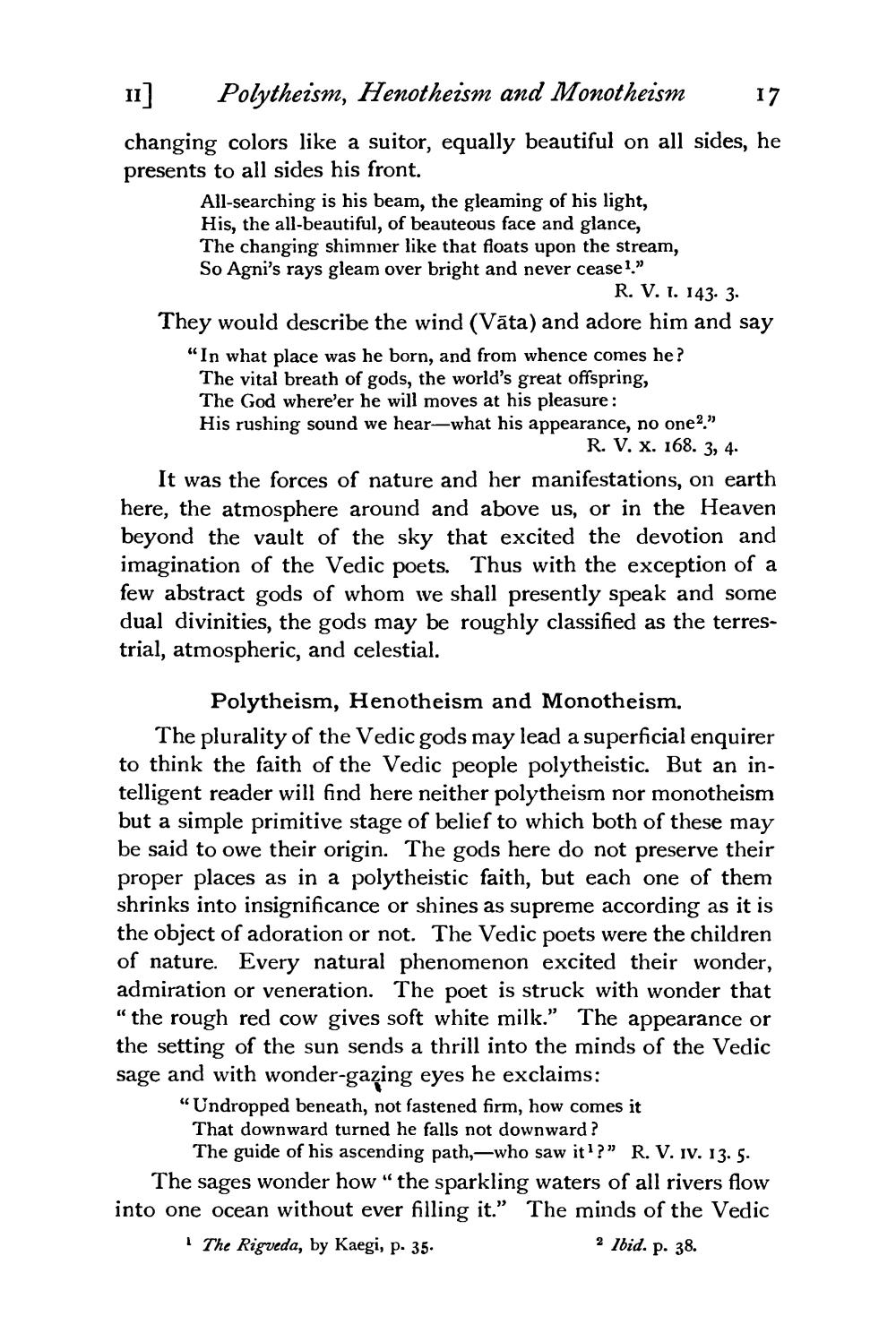________________
11) Polytheism, Henotheism and Monotheism 17 changing colors like a suitor, equally beautiful on all sides, he presents to all sides his front.
All-searching is his beam, the gleaming of his light, His, the all-beautiful, of beauteous face and glance, The changing shimmer like that floats upon the stream, So Agni's rays gleam over bright and never cease!."
R. V. 1. 143. 3. They would describe the wind (Vāta) and adore him and say "In what place was he born, and from whence comes he?
The vital breath of gods, the world's great offspring, The God where'er he will moves at his pleasure: His rushing sound we hear-what his appearance, no one?."
R. V. X. 168. 3, 4. It was the forces of nature and her manifestations, on earth here, the atmosphere around and above us, or in the Heaven beyond the vault of the sky that excited the devotion and imagination of the Vedic poets. Thus with the exception of a few abstract gods of whom we shall presently speak and some dual divinities, the gods may be roughly classified as the terrestrial, atmospheric, and celestial.
Polytheism, Henotheism and Monotheism. The plurality of the Vedic gods may lead a superficial enquirer to think the faith of the Vedic people polytheistic. But an intelligent reader will find here neither polytheism nor monotheism but a simple primitive stage of belief to which both of these may be said to owe their origin. The gods here do not preserve their proper places as in a polytheistic faith, but each one of them shrinks into insignificance or shines as supreme according as it is the object of adoration or not. The Vedic poets were the children of nature. Every natural phenomenon excited their wonder, admiration or veneration. The poet is struck with wonder that "the rough red cow gives soft white milk." The appearance or the setting of the sun sends a thrill into the minds of the Vedic sage and with wonder-gazing eyes he exclaims:
“Undropped beneath, not fastened firm, how comes it That downward turned he falls not downward ?
The guide of his ascending path,—who saw it'?” R. V. IV. 13. 5. The sages wonder how the sparkling waters of all rivers flow into one ocean without ever filling it." The minds of the Vedic "The Rigveda, by Kaegi, p. 35.
2 Ibid. p. 38.




